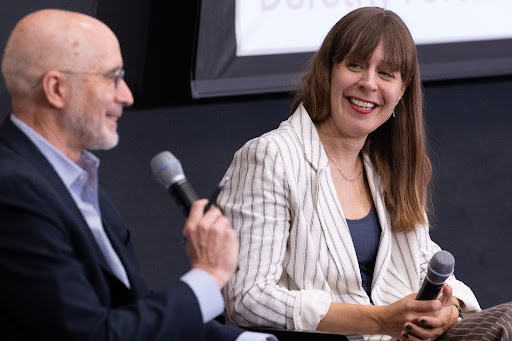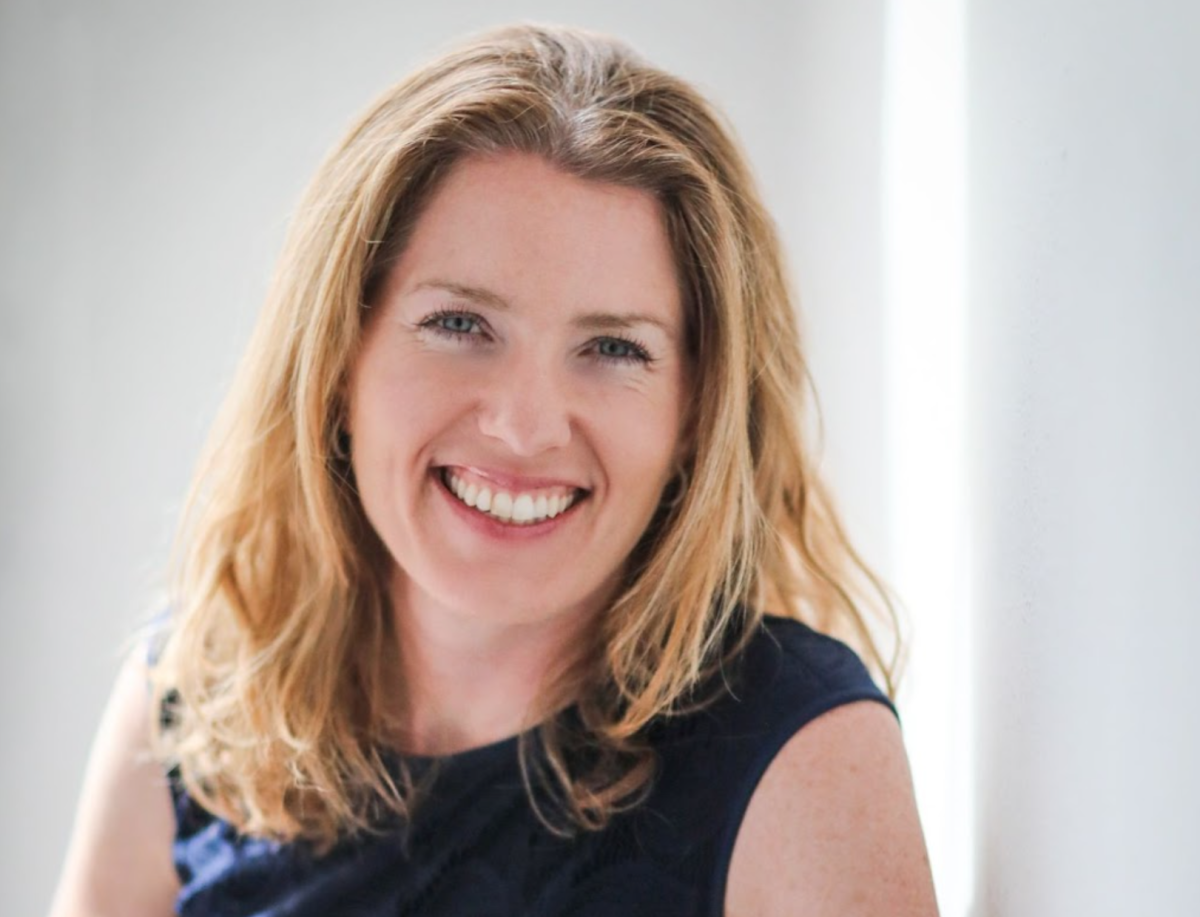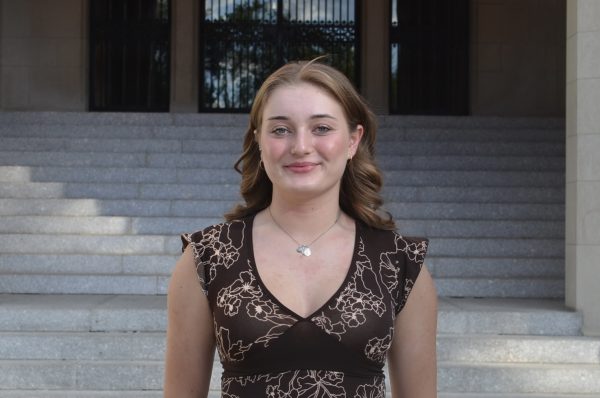Dorothy Fortenberry, former screenwriter for Hulu’s “The Handmaid’s Tale” and current co-showrunner for Apple TV’s “Extrapolations,” visited Fordham University Lincoln Center to share her history with screenwriting and answer questions on Tuesday, Oct. 29. The talk was moderated by David Gibson, director of Fordham University’s Center on Religion and Culture.
Fortenberry started her talk by discussing the beginning of her career, sharing that she was a playwright, having some of her first works produced in New York City while she was still in graduate school. However, after having her first child, she transitioned to Los Angeles, where she applied for a Warner Brothers program on screenwriting, open to anyone regardless of credentials with the only requirement being to send in a fake script for a show that was currently airing. After several rounds of writing and an interview, Fortenberry was accepted into the program, a boot camp on screenwriting that led to hiring participants on shows where they could apply their practice. Fortenberry was sent to work for “The 100,” where she worked through the Warner Brothers program for 10 weeks before being hired as a full-time screenwriter.
However, it wasn’t immediately easy for Fortenberry to adjust to the world of film production. Fortenberry discussed the differences between playwriting and screenwriting, sharing the biggest challenge as going from “having 90 minutes with my audience to nine acts and a teaser” with every five pages cutting to commercials. She cited her first work as a brief scene between two characters, noting the difficulties she faced trying to give an entire character’s backstory to the audience within just a few minutes.
Fortenberry persisted, staying with “The 100” through seasons one and two as well as half of season three. Midway through the third season, she had her second child and was forced to leave, as the Writer’s Guild didn’t offer parental leave at that time. During her time at home, she was offered a job on Hulu’s “The Handmaid’s Tale.” When asked why she was offered the job, Fortenberry shared that when telling a story about a “theocratic regime that controls women’s bodies,” there needed to be religious women in the writing room.
Fortenberry then dove deeper into the experience of being an actively Catholic woman in the film industry. In her experience, the film industry is a very open and accepting environment, and her religious beliefs only come up if she brings them up.
Following this was an audience question: “How do you balance other religions within shows, and how do you educate on your religion while being respectful of others?” Fortenberry responded that it isn’t hard for her to share her religion, as she knows that she has information on how her religion works, and she can bring that information to others who aren’t involved but may have questions. Fortenberry also noted that it is always hardest when you are the only one of any identity in a room, but it is helpful because of the multiplicity of perspectives and backgrounds that it brings.
Fortenberry transitioned into the complications of screenwriting when adapting a book into film. She shared that because the book was written in first person perspective, there was a lot within the world that the main character didn’t know. She had to adapt to this, as TV shows are not from a single perspective. While this can be challenging, Fortenberry noted that this allows for more freedom within writing. She could write from many characters’ perspectives, which comes with its own set of challenges. Fortenberry cited complications with writing Aunt Lydia in “The Handmaid’s Tale,” a character who she thinks is terrible but with whom her views align. Fortenberry said that writing a character she doesn’t relate to is less interesting, saying she “always wants to see the world from my characters’ eyes.”
Fortenberry finds media politics very complicated and appealing, with her focus and passion being on how climate change is shown through film. This passion led her to participate in panels on this issue, which was how she was poached for co-show runner on Apple TV’s “Extrapolations,” after four seasons with “The Handmaid’s Tale.”
The biggest change going from screenwriter to showrunner was the duties involved. Fortenberry no longer wrote individual scenes but was involved in production on a larger scale, noting that she misses writing but has really enjoyed seeing a different side to film production. Fortenberry shared the freedom she has felt with this career transition, as it allows her to be more impactful on how climate change is perceived by the world; she discussed the issues with the idea of humanity being the problem, as it is important to her to combat this perspective. To her role in climate change, Fortenberry said, “As long as I am doing something, I am less full of despair than when I’m inactive.”
When asked why he came, Henry Sullivan, FCRH ’25, mentioned the “lack of professional/cultural events for film.” Similarly, Hannah Groth-Reidy, FCRH ’28, noted that she “decided not to attend film school, but enjoys keeping up with the industry.” Groth-Reidy also mentioned how “inspiring it is to see someone make a career out of diving deeper into those difficult issues.” Alumni were also in attendance. Matthew Dillon, FCRH ’20, shared that he “took some great screenwriting classes at Fordham,” and decided to come to the event because it was free to alumni.
When asked about how she explores difficult issues without alienating her audience, Fortenberry emphasized the importance of focusing on one divisive issue at a time. She also focuses on asking questions instead of telling, as people normally have the answers themselves.









































































































































































































